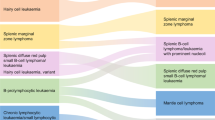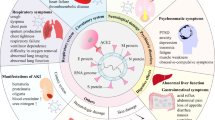Abstract
Diarrhea is a major cause of morbidity and discomfort for patients undergoing high-dose chemotherapy and autologous peripheral blood stem cell transplantation (APBSCT). There are multiple causes of diarrhea in patients undergoing transplantation including antineoplastic chemotherapy, antimicrobials and infection, including Clostridium difficile as the most common pathogen involved. The purpose of this study was to determine the incidence of C. difficile-associated diarrhea (CDAD) 1 week before and 30 days after APBSCT, and to identify risk factors for the development of CDAD including diagnosis. Two hundred and forty-two patients underwent APBSCT for multiple myeloma and lymphoma between October 1996 and October 2001 in two teaching hospitals. Diarrhea was reported in 157 (64.9%) subjects. One hundred and thirty-five out of the 157 subjects were tested for the presence of C. difficile toxin A. These subjects constitute the study group. The incidence of CDAD was 15%. Two thirds of the patients who developed CDAD had multiple myeloma and one third had lymphoma; this difference did not attain statistical significance. The use of cephalosporins (P=0.03) and the use of intravenous vancomycin (P=0.02) were the only identified risk factors associated with the development of CDAD. Patients treated with paclitaxel as part of the mobilization regimen had a lower incidence of CDAD than patients who received hematopoietic growth factor only (P=0.01).
This is a preview of subscription content, access via your institution
Access options
Subscribe to this journal
Receive 12 print issues and online access
$259.00 per year
only $21.58 per issue
Buy this article
- Purchase on Springer Link
- Instant access to full article PDF
Prices may be subject to local taxes which are calculated during checkout
Similar content being viewed by others
References
Avery R, Pohlman B, Adal K, Bolwell B, Goldman M, Kalaycio M et al. High prevalence of diarrhea but infrequency of documented Clostridium difficile in autologous peripheral blood progenitor cell transplant recipients. Bone Marrow Transplant 2000; 25: 67–69.
Tomblyn M, Gordon L, Singhal S, Tallman M, Williams S, Winter J et al. Rarity of toxigenic Clostridium difficile infections after hematopoietic stem cell transplantation: implications for symptomatic management of diarrhea. Bone Marrow Transplant 2002; 30: 517–519.
Yolken RH, Bishop CA, Townsend TR, Bolyard EA, Bartlett J, Santos GW et al. Infectious gastroenteritis in bone marrow transplant recipients. N Engl J Med 1982; 306: 1010–1012.
Cox GJ, Matsui SM, Lo RS, Hinds M, Bowden RA, Hackman RC et al. Etiology and outcome of diarrhea after marrow transplantation: a prospective study. Gastroenterology 1994; 107: 1398–1407.
Yuen KY, Woo PC, Liang RH, Chiu EK, Chen FF, Wong SS et al. Clinical significance of alimentary tract microbes in bone marrow transplant recipients. Diagn Microbiol Infect Dis 1998; 30: 75–81.
Bilgrami S, Feingold JM, Dorsky D, Edwards RL, Bona RD, Khan AM et al. Incidence and outcome of Clostridium difficile infection following autologous peripheral blood stem cell transplantation. Bone Marrow Transplant 1999; 23: 1039–1042.
Restrepo A, Schneider DL, Restrepo MI, Litofsky ID, Devore PE, Walsh T et al. High incidence of Clostridium difficile in patients with multiple myeloma undergoing autologous peripheral blood stem cell transplantation. Biol Blood Marrow Transplant 2002; 8: 104 (abstr 152).
Marts BC, Longo WE, Vernava III AM, Kennedy DJ, Daniel GL, Jones I . Patterns and prognosis of Clostridium difficile colitis. Dis Colon Rectum 1994; 37: 837–845.
Bartlett JG . Antibiotic-associated diarrhea. Clin Infect Dis 1992; 15: 573–581.
Lyerly DM . Clostridium difficile testing. Clin Microbiol Newsletter 1995; 17: 17–22.
Kelly CP, LaMont JT . Clostridium difficile infection. Annu Rev Med 1998; 49: 375–390.
Brown E, Talbot GH, Axelrod P, Provencher M, Hoegg C . Risk factors for Clostridium difficile toxin-associated diarrhea. Infect Control Hosp Epidemiol 1990; 11: 283–290.
Kyne L, Warny M, Qamar A, Kelly CP . Asymptomatic carriage of Clostridium difficile and serum levels of IgG antibody against toxin A. N Engl J Med 2000; 342: 390–397.
Kyne L, Warny M, Qamar A, Kelly CP . Association between antibody response to toxin A and protection against recurrent Clostridium difficile diarrhoea. Lancet 2001; 357: 189–193.
Riley TV . Antibiotic-associated diarrhoea. A costly problem. Pharmacoeconomics 1996; 10: 1–3.
Hecht JR, Olinger EJ . Clostridium difficile colitis secondary to intravenous vancomycin. Dig Dis Sci 1989; 34: 148–149.
Oldfield Jr EC . Clostridium difficile-associated diarrhea: risk factors, diagnostic methods, and treatment. Rev Gastroenterol Disord 2004; 4: 186–195.
Anand A, Glatt AE . Clostridium difficile infection associated with antineoplastic chemotherapy: a review. Clin Infect Dis 1993; 17: 109–113.
Rowinsky EK, Donehower RC . Paclitaxel (Taxol). N Engl J Med 1995; 332: 1004–1014.
Author information
Authors and Affiliations
Corresponding author
Rights and permissions
About this article
Cite this article
Arango, J., Restrepo, A., Schneider, D. et al. Incidence of Clostridium difficile-associated diarrhea before and after autologous peripheral blood stem cell transplantation for lymphoma and multiple myeloma. Bone Marrow Transplant 37, 517–521 (2006). https://doi.org/10.1038/sj.bmt.1705269
Received:
Revised:
Accepted:
Published:
Issue Date:
DOI: https://doi.org/10.1038/sj.bmt.1705269
Keywords
This article is cited by
-
Analysis of incidence and risk factors of the multidrug resistant gastrointestinal tract infection in children and adolescents undergoing allogeneic and autologous hematopoietic cell transplantation: a nationwide study
Annals of Hematology (2022)
-
Risk factors for recurrent Clostridium difficile infection in allogeneic hematopoietic cell transplant recipients
Bone Marrow Transplantation (2016)
-
Clostridium difficile Infection (CDI) in Solid Organ and Hematopoietic Stem Cell Transplant Recipients
Current Infectious Disease Reports (2014)



